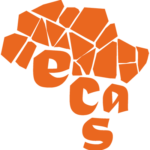Conference: European Conference on African Studies
29 June-1 July 2017
Basel, Switzerland
Panel on ‘Political Cultures in the Central African Copperbelt’ convened by Miles Larmer and Benjamin Rubbers (Université de Liège)
Overview
European Conference on African Studies 2017
Panel: Political Cultures in the Central African Copperbelt
Location: KH209
Date and Start Time: 01 July, 2017 at 16:00
Convenors
Miles Larmer (University of Oxford), Benjamin Rubbers (Université de Liège)
Short Abstract
The panel will analyse the comparative historical production of political cultures in copperbelt towns to study political expression, activities. This will provide understanding of the flow of ideas within and between the two copperbelts and their influence on political cultures.
Long Abstract
The mining towns of Zambia and DR Congo have provided classic study sites of urban African politics for a century. But as recent studies show, assumptions about the nature of African societies often distorted understanding of the processes involved in political mobilizations. To offer new insights, this panel will focus on the comparative historical production of political cultures in copperbelt towns. Political culture is understood as a conceptual tool for studying (inductively) forms of political expression, the social organization of political activities, and the flow of political ideas within and between societies. In the case of the central African copperbelt, it may be related, among other things, to gender dynamics; claims advanced in terms of ethnic, regional, or racial identity; the militancy of workers and trade unions; conflicting projects of state-building; and/or campaigns by civil society organizations and transnational advocacy networks. The aim of the comparison between Zambia and Congo is to scrutinize the role of rural-urban connections; the place of race, class, ethnicity, and nationalism in the political imagination; the influence of booms and busts in the mining industry; and the nature of various forms of political projects and aspirations. It also aims to provide new understanding of the connections between the two copperbelts, and their influence on the formation of political cultures on both sides of the border.
Corporate Strategies, Property Rights, and Distributional Outcomes in the Democratic Republic of Congo’s Copper and Cobalt Sector
Sarah Katz-Lavigne (Carleton University;University of Groningen)
Spiritual Identities in the Central African Copperbelts
Stephanie Lämmert (University of Oxford)
Trade unions and political culture(s) in the mining area of Kolwezi
Kristien Geenen (Université de Liège)
Everyday Unionism as a Political Act: Utilisations and Creations of Union Discourse in Everyday Actions
Thomas McNamara (University of Liege)

